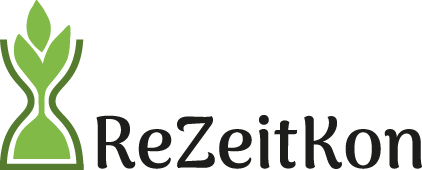Background
Project background
The use of more efficient technologies and practices at work and in private life promises to save time. However, often the feeling arises to have less time at one’s disposal. One reason for this is that more activities are handled more rapidly and in faster succession. The application of “time-saving” technologies and practices thus often has the paradoxical effect to increase time pressure. Such a time-rebound effect might in turn have negative environmental implications: If time is scarce, time-saving but resource-intensive consumption, such as fast food or domestic flights, become more attractive. In addition, people often reward themselves by means of consumption, to compensate for their tight and stressful everyday life. To actually use those goods, there is often not enough time. All the unread books or unused fitness equipment might even increase perceived time pressure, as these unexploited opportunities exert a latent pressure. To be able to afford those goods, in turn, requires a certain amount of paid work, initiating an acceleration cycle. However, negative environmental effects might also occur as a result of additional free time, i.e. in case working-time reductions are used for resource-intensive hobbies, such as travelling. Against this background the question arises which circumstances and competences are necessary so that time wealth translates into sustainable lifestyles.
Project goals
The objective of the ReZeitKon project is to empirically analyse the importance of time-rebound effects as a result of time-saving technologies and practices. In a first step, we develop tools and methods that enable us to empirically measure concepts such as time pressure or time wealth. Building on this, we develop a simulation model which allows us to quantify the environmental impacts of consumption under the condition of time pressure or time wealth, respectively.
In three fields of intervention, we work out measures to counteract time-rebound effects, and to foster time wealth and sustainable consumption in cooperation with our practice partners.
Together with schools, wedevelop an educational programme to foster competences in relation to time use, which should increase pupils’ ability for sustainable consumption. In cooperation with firms, we develop and evaluate time-related measures that aim at increasing employees’ time wealth.
In the area of private life, we evaluate courses in adult education with relation to time. These insights will eventually result in guidebooks on time and sustainability, which point out possibilities for strengthening one’s own time competence in personal life, as well as on time politics in firms.

Methods
To empirically test the relationship between our key constructs time-rebound effects, time wealth and sustainable consumption, we conduct the first comprehensive, nationwide representative survey on the topic. In cooperation with innovative practice partners, we develop measures that strengthen time wealth and mitigate time-rebound effects in a participatory manner. These measures will address both objective time use and subjective time perception. The measuring instruments developed in the representative survey are applied in all three fields of intervention to investigate the determinants and effects of time wealth. Drawing on a mixed-methods approach, the quantitative evaluation of practice partners is complemented by qualitative analyses, allowing for a deeper understanding of the identified relationships.
Project duration and funding
The project runs from 1 September 2018 until 31 August 2021. It is funded by the Federal Ministry of Education and Research (BMBF) in the programme “Rebound effects from a social-ecological perspective”.


